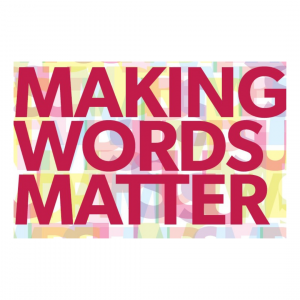
Members of staff from a local NHS Trust have been involved in the first ever national briefing on the importance of language when describing child exploitation.
Afua Appiah and Dr Romana Farooq, both from Cumbria, Northumberland, Tyne and Wear NHS Foundation Trust (CNTW), are the Lead Author and Principal Investigator respectively of the Making Words Matter: Practice and Knowledge Briefing.
In partnership with the NWG Network and the voluntary organisation Stop and Prevent Adolescent Criminal Exploitation (SPACE), the document is designed to help those involved in safeguarding children and young people subject to or at risk of exploitation, including teachers, police and health workers.
The briefing came together following a presentation Dr Farooq gave at the House of Commons on the impact of using dehumanising language to describe children.
The document highlights the importance of language when responding to children, young people and families affected by exploitation, explaining that many of the terms traditionally used can make victims feel like they are to blame in some way for what has happened to them, or can prevent them from coming forward to seek help.
Clinical Psychologist in Training Afua Appiah, works in CNTW’s specialist children and young people’s services.
She said: “The journey of making this document has been so positive, with all of us sharing the same passion but bringing in different perspectives. For me, it has built my confidence in talking about this topic and feeling able to challenge people on the language they use, and to challenge myself.
“A lot of the narrative around children who have been subject to exploitation is negative. This language shapes their identity and often as children develop, they take on board the narratives held of them by others, which in turn forms the basis of how they go on to describe themselves.”
The document is designed to be used by all organisations that work with children and young people, from the police and social services to sports clubs and schools.
It aims to begin a conversation and increase curiosity around language and its impact on children and young people subject to exploitation in services, recognising the pivotal role that practitioners and services play in shaping the identity of vulnerable children and young people.
Principal Clinical Psychologist Dr Farooq specialises in children’s human rights, child exploitation, trafficking and modern-day slavery. “The language we use about children impacts their social, emotional and psychological development,” she said.
“Conversations around child exploitation have always been stigmatised and taboo. Due to a number of high-profile national enquiries, we’ve been forced to confront the issue. This brings the challenge of how do we begin to talk about something we didn’t have a language for? This briefing certainly felt like the right time to interrogate the language we use.”
Dr Farooq hopes that the document will encourage conversations at CNTW. “We hope the briefing will be used as a way to enable dialogue among staff and encourage them to critically reflect on the language they use.”
The document is free for anyone to access and can be found on NWG’s website www.nwgnetwork.org
